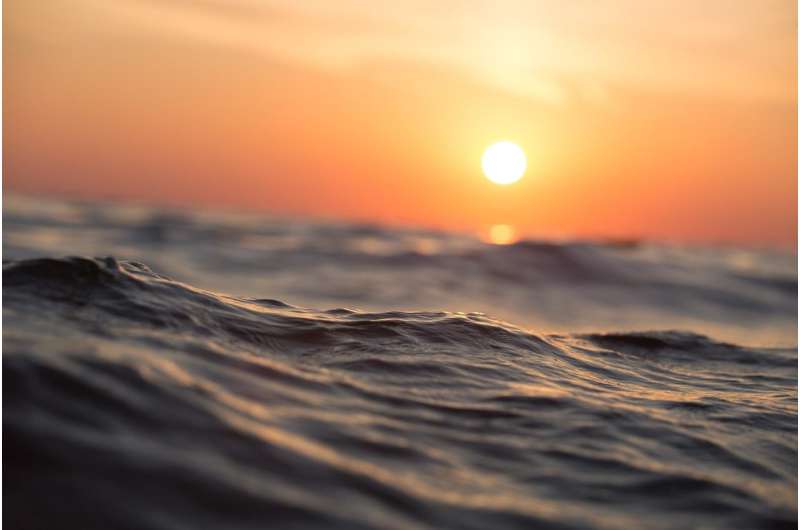The circular economy – a solution to the world's water crises?

Now in their third year of drought, Cape Town citizens narrowly avoided running out of water altogether this summer. The authorities threatened to shut off water altogether and refer residents to communal water taps if the dam levels reached below a certain point, the dreaded "Day Zero."
The stark situation galvanised people into action – overall, the city of Cape Town successfully lowered its total consumption from 600 liters per day to 507 liters per day. Per person, that means a limit of 50 liters or less per day, and households that go over this amount face hefty fines.
Almost 9,000 km away, India is experiencing similar extreme water shortages, which authorities claim is down to poor water management, affecting an unprecedented 600 million Indians, and has been described by a government think tank as "the worst water crisis in history."
It's a frightening glimpse into a future of water shortages, and a bleak warning for the rest of the world. By 2030, according to the UN, total global water demand is expected to exceed supply by 40 percent and approximately half of the world's population will suffer from water stress.
"Cape Town [and India] are good examples of the fact that despite the best intentions and forecasts, tools and designs, the water systems that we are developing today are bound to be stressed by situations, contexts and uncertainties that go beyond what they were designed to do," said Prof. Christos Makropoulos, an expert in hydroinformatic tools and methods for urban water management.
The whole world is starting to feel the pinch—by the end of June 2017, 80 percent of Portugal was experiencing moderate to severe levels of drought, and olive growers and vineyards in the south of Europe were heavily affected by water shortages, affecting olive oil and wine supplies. This has been further compounded as temperatures reaching 46C in places in summer 2018, close to Portugal's national record of 47.4C.
While nearly 70 percent of the world is covered by water, only 2.5 percent of it is fresh. And of that freshwater, most of it is trapped in glaciers and ice fields, leaving just 0.007 percent for the planet's 6.8 billion people.
Not surprisingly, Prof. Makropoulous says, people living in southern European countries tend to be more aware of water conservation than those from the north of Europe, but more northerly countries shouldn't expect to be exempt from water shortages.
London's water authorities are already reporting signs of stress in the city's system – burst pipes in March 2018 left more than 20,000 homes without water and the supply is expected to be in serious trouble by 2040.
In Ireland, a country that regularly experiences between 1500 and 2000 mm of rain per year, the summer of 2018 brought with it more than twenty days of drought and unexpected water shortages.
It's clear that we need to change how we deal with water.
According to Prof. Makropoulos, the most effective way to tackle these growing problems is to transform our economies into a circular model.
The idea of a circular economy is one in which waste and energy is fed back into the system via a series of loops, for example by recycling waste to make new products or to provide energy. In this way, the system as a whole uses less resources and produces less waste, creating a win-win situation.
"When you look at a waste water treatment plant – could its processes also be used to produce energy at the same time?" said Prof. Markopoulos. "This shift of whether waste water is a waste that we need to treat to protect the environment or whether it's a resource that we can mine makes all the difference."
Changing people's perspectives to see waste as a resource will take some time, but trial initiatives are already underway in places like Costa Brava, Swedish region Gotland, Bucharest in Romania and a variety of sites across Europe.
As part of the recently-launched NextGen project, these areas will serve as "test-beds" for trying out new thinking and technologies for better water management.
The solutions that the project finds will be a combination of new technologies, new approaches and new methodologies for treating waste water. One such solution might be the development of businesses that can facilitate change.
"In the Netherlands there is quite a big agricultural sector of course, but the waste water treatment companies were not in the business of selling fertiliser, and the farmers were not interested to go to the treatment plants for the fertiliser," said Prof. Makropoulous. "They created a company called Aquaminerals that's essentially a broker."
Profitability is key to the success of any circular economy initiative, according to Makropoulos. In this way, financial sustainable can be ensured and the solution will last into the future.
"The challenge here is to make sure that the approaches and the technologies that we come up with is not only good for the environment but that it makes sense from an economical perspective," said Prof. Makropoulos. "If that can be achieved, it's a game-changer."
Provided by European Science Communication Institute


















